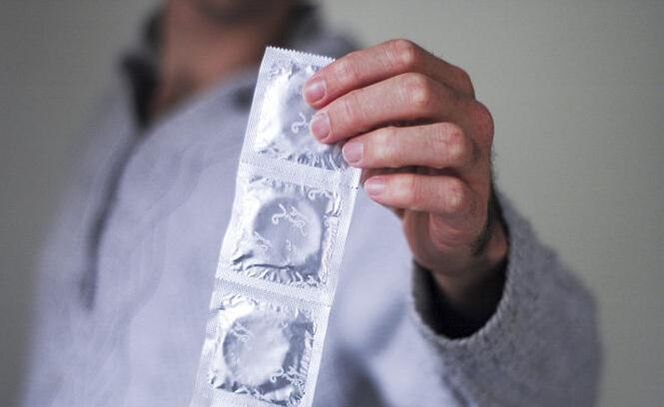
Prostatitis is the most common urinary tract disease today. And the reason is because the factors that lead to prostatitis develop very common in men's daily lives. In general, the treatment of prostatitis is a rather complex process, which includes many procedures, medications, therapy, and massage. To achieve remission and help avoid the painful symptoms of prostatitis, antibiotics, anti-inflammatory drugs, pain relievers, and immune system boosters will help.
Drug treatment of prostatitis
Some of the methods commonly recommended for prostate treatment are:
- Candle.Applied rectally, affects the metabolism in the prostate gland. Within 30-40 minutes after application, you should stay in a supine position. The course is from five to ten days. Contraindications: hypersensitivity to the components of suppositories. Possible side effects: allergic (itching and burning).
- Inject anti-inflammatory drugs.The drug also stimulates the immune system and strengthens the vascular system.
- Infiltration.This type of therapy helps deliver medication directly where it's needed - it's given through the external opening of the urethra. Approximately 5 ml of the drug mixture should be injected and the bladder should be emptied before the procedure.
- Circuit.This method is often called folk because it uses infusions and decoction from medicinal plants commonly used in traditional medicine. It is based on the simultaneous temperature and effect of the drug, which enhances its effect. As a rule, microclysters are recommended to be taken before bedtime - so that after the procedure the prostate gland is not stretched and hypothermia is possible. As medicine, infusions of sage, calendula, chamomile, wormwood are used. The solution is injected into the rectum (in an amount not exceeding 100 ml), where it will be absorbed. Microclyster is often used in tandem with antibacterial treatment.
- Pills for the treatment of prostate gland.Often, to treat diseases such as prostatitis, broad-spectrum antibacterial agents are used, especially if the causative agent has not been identified. These drugs can be divided into three groups: drugs of the tetracycline group, drugs of the penicillin series, and drugs of the fluoroquinolone group.
Antibiotics to treat prostatitis
Let's take a closer look at the last class of drugs for the treatment of prostatitis.
Fluoroquinolones are modern antibacterial agents, developed relatively recently. Therefore, they have some pretty big advantages over other broad-spectrum antibiotics. Drugs of this group practically do not cause immunosuppression of the patient. Representatives of fluoroquinolones have a wider range of effects on microorganisms.
Preparations of the tetracycline group are used as an antibacterial treatment for prostatitis less often than with fluoroquinolones. Usually, specialists prescribe antibiotics for chronic prostatitis and infections. With a non-infectious form, the treatment is still controversial and not fully explored.
In the treatment of prostatitis, antibacterial drugs are not prescribed immediately, but only after a doctor's examination to detect an infection. During this period, symptomatic therapy is often recommended, aimed at combating inflammatory processes and painful symptoms.
Antibiotic therapy lasts approximately four weeks or more with mandatory clinical monitoring of the patient's condition. In the absence of a positive therapeutic result, antibacterial drugs are refused, but no earlier than two weeks after the start of the course.
After successful treatment with antibiotics, patients can achieve a long enough period of good health. However, as a rule, painful sensations return over time, so treatment with antibacterial drugs alone should not be considered sufficient. Good results are achieved through a therapeutic program aimed at increasing the body's local and general resistance to pathogens. In this case, you can count on success, or at least a long-term remission of the disease.
Prostatitis: what to ask at the pharmacy?
Next, I would like to draw attention to the prostate medications, which are now on the market and are the most purchased prostatitis drugs.
Herbal preparation with sabal palm fruit extract. The drug is used to treat prostatitis in the first and second stages, as well as chronic prostatitis. Directions for use: Take one tablet daily after meals, drink plenty of water, do not chew. Contraindications: hypersensitivity to the components. Side effects: stomach upset (occurs quite rarely). If we evaluate patient experience and feedback, the device is the most purchased today.
A drug that is produced in the form of an injection and a suppository. It has an organic effect on the prostate gland. The drug normalizes spermatogenesis and microcirculation, increases the tone of the bladder muscles. Indications for use: chronic prostatitis, prostate tumor, etc. There may be side effects in the form of allergic reactions. The drug is not the most expensive in terms of price, it treats and not only relieves symptoms, is not purely chemically synthesized, overdose has not been studied.
The most important thing every man should know is that you should contact a urologist immediately at the first signs of prostatitis. A specialist will determine the necessary therapy, select the best medication for your case, and prescribe an effective course of treatment.



























